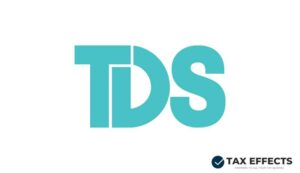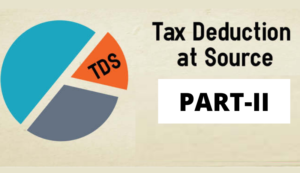
All about TDS- Meaning, Applicability, Rates, Due dates & Amendments (AY 2023-24)
In this article, we will discuss about the Tax Deducted at Source (TDS) all sections & amendments in detail. Tax Deducted at Source (TDS)
Home » TDS

In this article, we will discuss about the Tax Deducted at Source (TDS) all sections & amendments in detail. Tax Deducted at Source (TDS)

In the last part of this summary, we have learned about the basic meaning of TDS, some concepts which were very useful and commonly applied


It is always the knowledge which makes people empowered. Therefore, our effort through this website is to help others by sharing knowledge which is useful for them.
We provide tax related articles which is useful for various stakeholders starting from Students, Traders, Tax Practitioners, and the public at large.